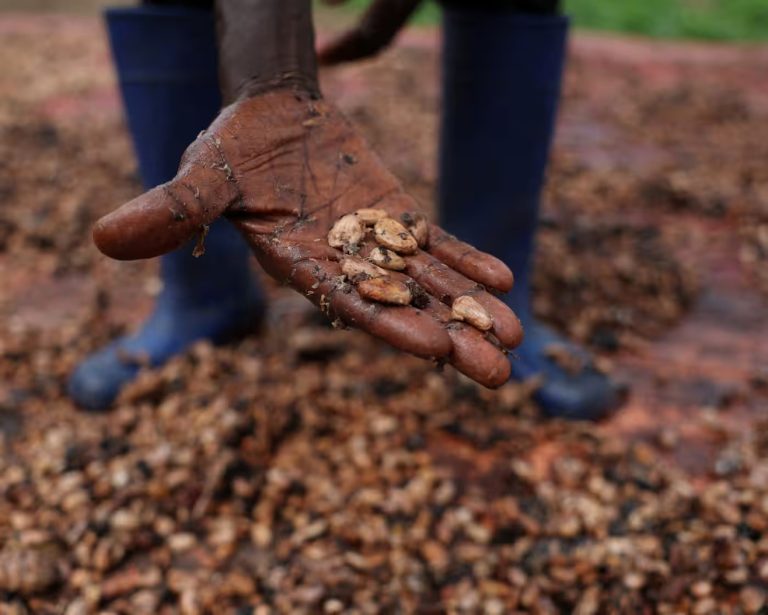Climate change and biodiversity loss intensify EU’s chocolate supply risks, report finds
A new report warns that the European Union’s so-called “chocolate crisis” is being exacerbated by environmental pressures, with cocoa among six key food commodities heavily dependent on climate-vulnerable nations.
According to UK-based consultancy Foresight Transitions, over two-thirds of the EU’s 2023 imports of cocoa, coffee, soy, rice, wheat, and maize came from countries poorly equipped to cope with the impacts of climate change.
For cocoa, wheat, and maize in particular, at least two-thirds of imports originated from regions suffering from significantly degraded biodiversity, the analysis revealed.
Researchers noted that climate-related damage to agriculture is being worsened by the erosion of biodiversity, which undermines the resilience of farming systems. “These aren’t distant risks,” said lead author Camilla Hyslop. “They’re already impacting business operations, employment, and food prices—and it’s only getting more severe.”
The study cross-referenced EU trade data from Eurostat with two global environmental indices: the Notre Dame Global Adaptation Index, which measures nations’ climate vulnerability and preparedness, and the UK Natural History Museum’s biodiversity index, which gauges how much natural wildlife remains compared to pre-industrial levels.
The findings showed that the majority of the EU’s food imports came from countries ranking “low-medium” on both climate readiness and biodiversity health.
Certain food chains were especially exposed. About 90% of maize imports came from countries with limited climate resilience, while 67% came from areas with diminished biodiversity. Cocoa fared even worse: 96.5% of the EU’s cocoa came from countries lacking climate preparedness, and 77% from nations with compromised ecosystems.
The chocolate sector is already reeling from cocoa shortages and rising sugar prices, trends partly driven by extreme weather. Much of the EU’s cocoa is sourced from West Africa, where farmers are grappling with both climate disruption and habitat loss.
Commissioned by the European Climate Foundation, the report urges major chocolate companies to take action by investing in climate adaptation and conservation efforts in supplier regions.
“This isn’t just about corporate responsibility or ESG,” the authors said. “It’s a strategic necessity to protect supply chains. Ensuring farmers are paid fairly can enable them to strengthen their farms’ resilience.”
Paul Behrens, an environmental expert at the University of Oxford who was not involved in the study, said the report underscores critical risks. “There’s a common belief that the EU is food-secure, but this analysis highlights real vulnerabilities in key supply chains,” he said.
Although coffee, soy, and rice showed fewer systemic risks, the report did identify hotspots. For example, Uganda—responsible for 10% of EU coffee imports in 2023—scored low on both climate and biodiversity metrics.
Joseph Nkandu, head of Uganda’s National Union of Coffee Agribusinesses, called for improved access to international climate funding. “Our weather is no longer reliable,” he said. “Droughts, heatwaves, and unpredictable rainfall are hurting coffee yields.”
Marco Springmann, another food systems expert at Oxford not involved in the research, argued for broader change. “Much of the soy and a large share of grains are used for animal feed,” he said. “Strengthening those supply chains misses the bigger point—they support food systems that are part of the problem.

